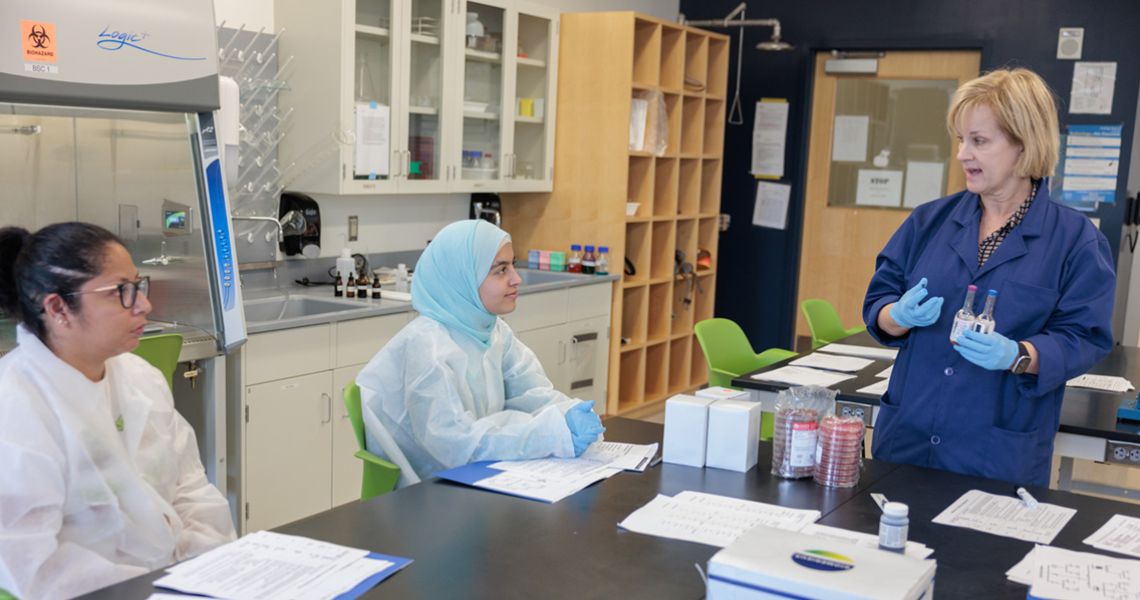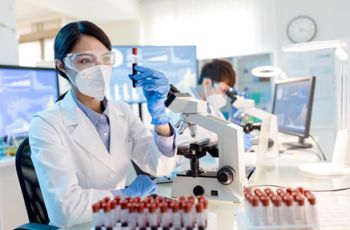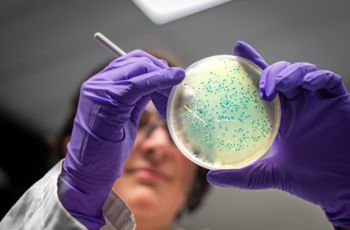Clinical laboratories play a crucial role in modern health care, with an estimated 70% of medical decisions being influenced by laboratory test results. The leadership of this critical industry determines the quality, efficiency, and reliability of diagnostic services that impact patient care daily.
The field faces an unprecedented demand for clinical laboratory managers due to multiple converging factors: a dramatic increase in diagnostic testing volumes, growing complexity of laboratory operations, and the “silver tsunami” — where a disproportionate number of current laboratory managers are rapidly approaching retirement age.
According to the American Society for Clinical Pathology’s 2022 Vacancy Survey, laboratory leadership positions face high turnover, with retirement rates of 25-35% across many departments.1 This management void is expected to grow even larger as nearly 20% of current laboratory managers plan to retire within the next five years according to Bureau of Labor and Statistics and HRSA projections showing a significant growth in laboratory workforce needs.2,3,4,5 This perfect storm of increasing demand and a deepening personnel deficit has created extraordinary career opportunities for health care professionals who can balance technical expertise with strong business acumen in these complex operations.
Explore how clinical laboratory managers impact health care delivery, the skills required to excel in this field, and the pathways to advance into leadership roles.
The growing need for laboratory management professionals
“With the increasing complexity of laboratory operations and the critical role of diagnostic testing in healthcare decision-making, the demand for skilled laboratory managers continues to rise,” says Carol Rentas, PhD, MEd, MT(ASCP)SCCM, MBCM, program director for the Clinical Laboratory Management Programs at George Washington University School of Medicine and Health Sciences (GW SMHS).
Laboratory professionals, particularly those in leadership positions, are in high demand, with many current leaders approaching retirement age. A significant portion of laboratory directors are over age 55, and many plan to retire within the next five years. Industry analysis projects substantial growth, with clinical laboratory manager positions expected to increase by 28% between 2018 and 2028.6 This demographic shift, combined with retirements and industry growth, creates unprecedented opportunities for the next generation of laboratory leaders.
These professionals are at the forefront of laboratory medicine, ensuring the accurate and timely delivery of critical diagnostic information while managing complex operations and diverse teams.
Understanding the role of clinical laboratory managers
Clinical laboratory managers serve as the bridge between technical operations and administrative leadership in medical laboratories. Their responsibilities include:
- Operations management: Overseeing daily laboratory operations, implementing new technologies, and ensuring compliance with regulatory requirements.
- Quality systems management: Developing and maintaining quality control programs, managing accreditation processes, and ensuring adherence to safety protocols.
- Human resource management: Leading diverse teams, managing staff development, and implementing effective training programs.
- Financial management: Budget planning, resource allocation, and optimization of laboratory operations for cost-effectiveness.
- Strategic planning: Evaluating new technologies, planning for future growth, and aligning laboratory services with organizational goals.
- Data analytics: Utilizing laboratory information systems, analyzing performance metrics, and implementing process improvements.
The impact of clinical laboratory managers on healthcare delivery
Laboratory managers’ expertise directly influences health care quality through:
- Active management can reduce times by up to 25%)
- Improved accuracy and reliability of diagnostic testing
- Enhanced cost-effectiveness of laboratory operations (well-managed laboratories report 15-20% better cost efficiency)
- Better coordination between laboratory services and clinical departments
- Increased staff satisfaction and retention (laboratories with strong management report 30% lower turnover rates)
- Maintained regulatory compliance and accreditation standards
Management spotlight: A leader’s approach to laboratory transformation
A regional medical center laboratory faced significant challenges: test volumes had increased 40% over two years, staff turnover reached 25%, and antiquated systems were causing delays in result reporting. The incoming laboratory manager recognized that successfully implementing new automation and laboratory information system (LIS) solutions would require technical expertise and careful change management.
The manager developed a comprehensive project plan that began with forming a staff advisory committee to provide input on workflow pain points and potential solutions. This engagement strategy helped overcome initial resistance to change and garnered buy-in for the upcoming transitions. The manager then led a phased implementation of automated pre-analytical processing and a new LIS system, incorporating staff feedback at each stage and providing extensive training and support.
The careful balance of technological advancement and employee engagement paid off. Within 18 months, the laboratory achieved a 35% reduction in STAT test turnaround times, decreased staff turnover to less than 10%, and improved cost per test by 20%. Most importantly, staff surveys showed 85% satisfaction with the new systems and processes, demonstrating how effective change management can transform laboratory operations while maintaining team cohesion.
Career outlook for clinical laboratory managers
The job market for clinical laboratory managers is experiencing exceptional growth, driven by staff retirement and the expanding role of laboratory medicine in health care. Current industry data shows that demand is growing at 11% annually, significantly higher than the 4% average for all health care occupations. Studies indicate that 78% of health care facilities report difficulty filling laboratory management positions, with rural areas experiencing vacancy rates as high as 25%.
As of Jan. 1, 2025, clinical laboratory manager salaries in the United States range from $93,533 to $157,724, with a median of $124,100 annually.7 Organizations offer competitive compensation packages, including signing bonuses of up to $20,000 to attract and retain qualified leaders.
How to become a clinical laboratory manager
There are multiple avenues for health care professionals interested in advancing into laboratory management roles.
- Gain clinical workforce experience: Work as a clinical laboratory professional to build foundational knowledge of laboratory operations. This usually requires a degree/certificate and certification in medical laboratory science.
- Pursue specialized management education: After obtaining a bachelor’s degree in medical laboratory science or a related field, seek additional training in clinical laboratory management. Advanced degrees, such as the Graduate Certificate or Master of Science in Health Sciences (MSHS) in Clinical Laboratory Management from GW SMHS, provide specialized management training. These programs provide comprehensive training in operations, human resources, quality systems, financial management, leadership development, and data analytics.
- Develop leadership skills: Gain additional experience in supervising staff, managing projects, and participating in quality improvement initiatives.
- Obtain professional management certification: Pursue the American Society for Clinical Pathology (ASCP) Diplomate in Laboratory Management (DLM) certification to enhance your competitive edge. This certification can lead to increased job opportunities, higher compensation, and accelerated career advancement in laboratory management positions.
Launch your laboratory management career
Given the current leadership gap in laboratory medicine, there has never been a better time to pursue a career in laboratory management. With an estimated 3,000 new laboratory management positions expected to open in the next three years alone, the opportunity for career advancement is exceptional.
If you’re ready to take the next step in your laboratory career, explore why George Washington University School of Medicine and Health Sciences is recognized for excellence in laboratory management education. Our programs prepare you for success in laboratory leadership roles while offering the flexibility of online learning and the support of experienced faculty who are leaders in the field.
Explore more about these programs:
- Graduate Certificate in Clinical Laboratory Management
- Master of Science in Health Sciences (MSHS) in Clinical Laboratory Management



